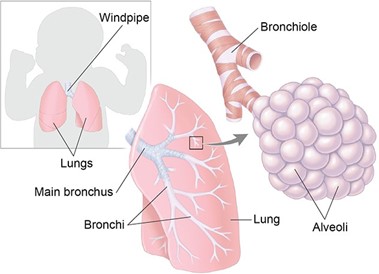Parents of a school-age child with hemophilia ask the nurse, “Which sports are recommended for children with hemophilia?” Which sport should the nurse recommend?
Soccer
Swimming
Basketball
Football
The Correct Answer is B

Swimming is one of the best sports for people with hemophilia because it strengthens the muscles without putting stress on the joints. Swimming is also recommended by most sports physicians and hematologists for patients with hemophilia.
Choice A is wrong because soccer is a contact sport that can cause injuries and bleeding episodes in people with hemophilia. Soccer is not recommended by most sports physicians or hematologists for patients with hemophilia.
Choice C is wrong because basketball is also a contact sport that can lead to injuries and bleeding episodes in people with hemophilia. Basketball may be safe for young children, but the risk increases with the intensity of the game.
Choice D is wrong because football is a collision sport that can cause severe injuries and bleeding episodes in people with hemophilia. Football is not recommended by most sports physicians or hematologists for patients with hemophilia.
Normal ranges for hemophilia are:
- Mild hemophilia: 5% to 40% of normal clotting factor
- Moderate hemophilia: 1% to 5% of normal clotting factor
Severe hemophilia: less than 1% of normal clotting factor
Nursing Test Bank
Naxlex Comprehensive Predictor Exams
Related Questions
Correct Answer is C
Explanation
The patient is showing signs of magnesium toxicity, such as respiratory depression, hyporeflexia, and flushing.
Magnesium sulfate is a high-alert medication that can cause serious adverse effects if not monitored closely.
The nurse should stop the infusion immediately and notify the provider.
Choice A is wrong because calling for a stat magnesium sulfate level will not address the immediate problem of toxicity.
The nurse should act quickly to prevent further complications.
Choice B is wrong because administering oxygen will not reverse the effects of magnesium toxicity.
Oxygen may be helpful for respiratory distress, but it will not correct the underlying cause.
Choice D is wrong because hydralazine is an antihypertensive medication that lowers blood pressure.
The patient’s blood pressure is already within the normal range for a pregnant woman with preeclampsia (140-160/90-110 mm Hg).
Hydralazine may cause hypotension and fetal distress.
Correct Answer is A
Explanation
choice A. Surfactant improves the ability of your baby’s lungs to exchange oxygen and carbon dioxide.

Surfactant is a substance that coats the inner surface of the alveoli, the tiny air sacs in the lungs.
It reduces the surface tension of the alveoli and prevents them from collapsing during exhalation.
Premature infants often lack enough surfactant, which leads to respiratory distress syndrome (RDS).
Artificial surfactant is given to these infants to help them breathe more easily. Choice B is wrong because surfactant has nothing to do with sedation.
Sedation is a state of reduced consciousness induced by drugs. Surfactant does not affect the level of consciousness of the infant.
Choice C is wrong because surfactant is not used to reduce episodes of periodic apnea.
Periodic apnea is a condition where the infant stops breathing for a short time, usually due to immature brainstem function.
Surfactant does not affect the brainstem or the control of breathing.
Choice D is wrong because surfactant is not used to fight a possible respiratory tract infection. Surfactant does not have any antibacterial or antiviral properties.
Surfactant is used to treat RDS, which is caused by a lack of surfactant, not by an infection.
Whether you are a student looking to ace your exams or a practicing nurse seeking to enhance your expertise , our nursing education contents will empower you with the confidence and competence to make a difference in the lives of patients and become a respected leader in the healthcare field.
Visit Naxlex, invest in your future and unlock endless possibilities with our unparalleled nursing education contents today
Report Wrong Answer on the Current Question
Do you disagree with the answer? If yes, what is your expected answer? Explain.
Kindly be descriptive with the issue you are facing.
